 | TODAY IN SCIENCE HISTORY
NEWSLETTER - 20 JUNE |
 | "It is an old saying, abundantly justified, that where sciences meet there growth occurs. It is true moreover to say that in scientific borderlands not only are facts gathered that [are] often new in kind, but it is in these regions that wholly new concepts arise. It is my own faith that just as the older biology from its faithful studies of external forms provided a new concept in the doctrine of evolution, so the new biology is yet fated to furnish entirely new fundamental concepts of science, at which physics and chemistry when concerned with the non-living alone could never arrive." - Sir Frederick Gowland Hopkins, English biochemist (born 20 Jun 1861)  |
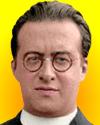 | "The radius of space began at zero; the first stages of the expansion consisted of a rapid expansion determined by the mass of the initial atom, almost equal to the present mass of the universe. If this mass is sufficient, and the estimates which we can make indicate that this is indeed so, the initial expansion was able to permit the radius to exceed the value of the equilibrium radius. The expansion thus took place in three phases: a first period of rapid expansion in which the atom-universe was broken into atomic stars, a period of slowing-down, followed by a third period of accelerated expansion. It is doubtless in this third period that we find ourselves today, and the acceleration of space which followed the period of slow expansion could well be responsible for the separation of stars into extra-galactic nebulae." - Belgian astronomer and cosmologist, in the quiz below, who originated (1927) the modern big-bang theory for the origin of the universe (died 20 Jun 1966)  |
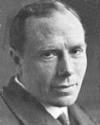 | "Increased knowledge of heredity means increased power of control over the living thing, and as we come to understand more and more the architecture of the plant or animal we realize what can and what cannot be done towards modification or improvement." (1910) - Reginald C. Punnett, English geneticist (born 20 Jun 1875)  |
| Before you look at today's web page, see if you can answer some of these questions about the events that happened on this day. Some of the names are very familiar. Others will likely stump you. Tickle your curiosity with these questions, then check your answers on today's web page. |
 |  Reginald Crundall Punnett, born 20 Jun 1875, was an English Mendelian geneticist who, with the English biologist William Bateson, were among the first English geneticists. They reported the discovery of two new genetic principles: the first account of genetic linkage in sweet pea; and gene interaction (1905). Punnett devised the "Punnett" square. Reginald Crundall Punnett, born 20 Jun 1875, was an English Mendelian geneticist who, with the English biologist William Bateson, were among the first English geneticists. They reported the discovery of two new genetic principles: the first account of genetic linkage in sweet pea; and gene interaction (1905). Punnett devised the "Punnett" square.
 What is the purpose of the Punnett square? |
 |  Sir Frederick Gowland Hopkins, born on 20 Jun 1861, was a British biochemist, who received (with Christiaan Eijkman) the 1929 Nobel Prize for Physiology or Medicine for discovery of essential nutrient factors, needed in animal diets to maintain health. Hopkins fed young rats on a basic diet which, in addition to the necessary salts, contained a carefully purified mixture of lard, starch, and casein (the most abundant protein in milk). After some time the animals ceased to grow. Then Hopkins demonstrated that it was only necessary to add a very small daily amount of milk, 2 - 3 cc for each animal, for growth to recommence. Sir Frederick Gowland Hopkins, born on 20 Jun 1861, was a British biochemist, who received (with Christiaan Eijkman) the 1929 Nobel Prize for Physiology or Medicine for discovery of essential nutrient factors, needed in animal diets to maintain health. Hopkins fed young rats on a basic diet which, in addition to the necessary salts, contained a carefully purified mixture of lard, starch, and casein (the most abundant protein in milk). After some time the animals ceased to grow. Then Hopkins demonstrated that it was only necessary to add a very small daily amount of milk, 2 - 3 cc for each animal, for growth to recommence.
 By what name are the essential nutrient factors now known? |
 |  A Belgian astronomer and cosmologist (1894-1966) formulated the modern big-bang theory, which holds that the universe began in a cataclysmic explosion of a small, primeval "super-atom." A Belgian astronomer and cosmologist (1894-1966) formulated the modern big-bang theory, which holds that the universe began in a cataclysmic explosion of a small, primeval "super-atom."  Can you name this man? Can you name this man? |
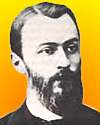 |  Dmitry Iosifovich Ivanovsky (1864-1920) was a Russian microbiologist who, from his study of mosaic disease in tobacco, first reported the characteristics of a new life form. (They were also independently discovered and named by the Dutch botanist M.W. Beijerinck only a few years later.) Ivanovsky had been commissioned in 1890 to study a mysterious disease that was killing tobacco crops in the Crimea. He determined that some agent in sap could transfer disease from plant to plant. Through detailed filtering and microscope work, he concluded that some invisible parasite, much smaller than any known bacterium, was the culprit. Dmitry Iosifovich Ivanovsky (1864-1920) was a Russian microbiologist who, from his study of mosaic disease in tobacco, first reported the characteristics of a new life form. (They were also independently discovered and named by the Dutch botanist M.W. Beijerinck only a few years later.) Ivanovsky had been commissioned in 1890 to study a mysterious disease that was killing tobacco crops in the Crimea. He determined that some agent in sap could transfer disease from plant to plant. Through detailed filtering and microscope work, he concluded that some invisible parasite, much smaller than any known bacterium, was the culprit.  What is the name of this new life form? What is the name of this new life form? |
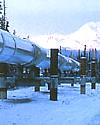
|  In 20 Jun1977, the $7.7 billion trans-Alaskan oil pipeline opened linking oil fields in Prudhoe Bay to a shipping port, where oil arrives 38 days later. Because of the earth's heat at greater depths, oil pumped from the Prudhoe Bay field is put through heat exchangers that work like a car's radiator to cool the oil before it enters the pipeline. In 20 Jun1977, the $7.7 billion trans-Alaskan oil pipeline opened linking oil fields in Prudhoe Bay to a shipping port, where oil arrives 38 days later. Because of the earth's heat at greater depths, oil pumped from the Prudhoe Bay field is put through heat exchangers that work like a car's radiator to cool the oil before it enters the pipeline.
 At what shipping port does the pipeline end? |
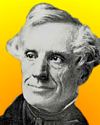
|  On 20 Jun of a certain year, Samuel F.B. Morse received a U.S. patent for telegraphy signals. On 20 Jun of a certain year, Samuel F.B. Morse received a U.S. patent for telegraphy signals.
 In what decade was this patent issued? |
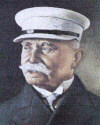
|  On 20 Jun 1908, a German inventor made his first flight in his new airship at Friedrichshafen, Germany. On 20 Jun 1908, a German inventor made his first flight in his new airship at Friedrichshafen, Germany.
 Who was this inventor? |
When you have your answers ready to all the questions above, you'll find all the information to check them, and more, on the June 20 web page of Today in Science History. Or, try this link first for just the brief answers.
Fast answers for the previous newsletter for June 19: Bohr; pressure; Royal Society; circumference of the Earth; the decade including the year 1977; melodeon.
|
 If you enjoy this newsletter, the website, or wish to offer encouragement or ideas, please send feedback by using your mail reader Reply button. If you enjoy this newsletter, the website, or wish to offer encouragement or ideas, please send feedback by using your mail reader Reply button. |
--
If you do not want to receive any more newsletters,
Unsubscribe To update your preferences and to unsubscribe visit
this link 






 Reginald Crundall Punnett, born 20 Jun 1875, was an English Mendelian geneticist who, with the English biologist William Bateson, were among the first English geneticists. They reported the discovery of two new genetic principles: the first account of genetic linkage in sweet pea; and gene interaction (1905). Punnett devised the "Punnett" square.
Reginald Crundall Punnett, born 20 Jun 1875, was an English Mendelian geneticist who, with the English biologist William Bateson, were among the first English geneticists. They reported the discovery of two new genetic principles: the first account of genetic linkage in sweet pea; and gene interaction (1905). Punnett devised the "Punnett" square. What is the purpose of the Punnett square?
What is the purpose of the Punnett square?
 Sir Frederick Gowland Hopkins, born on 20 Jun 1861, was a British biochemist, who received (with Christiaan Eijkman) the 1929 Nobel Prize for Physiology or Medicine for discovery of essential nutrient factors, needed in animal diets to maintain health. Hopkins fed young rats on a basic diet which, in addition to the necessary salts, contained a carefully purified mixture of lard, starch, and casein (the most abundant protein in milk). After some time the animals ceased to grow. Then Hopkins demonstrated that it was only necessary to add a very small daily amount of milk, 2 - 3 cc for each animal, for growth to recommence.
Sir Frederick Gowland Hopkins, born on 20 Jun 1861, was a British biochemist, who received (with Christiaan Eijkman) the 1929 Nobel Prize for Physiology or Medicine for discovery of essential nutrient factors, needed in animal diets to maintain health. Hopkins fed young rats on a basic diet which, in addition to the necessary salts, contained a carefully purified mixture of lard, starch, and casein (the most abundant protein in milk). After some time the animals ceased to grow. Then Hopkins demonstrated that it was only necessary to add a very small daily amount of milk, 2 - 3 cc for each animal, for growth to recommence. By what name are the essential nutrient factors now known?
By what name are the essential nutrient factors now known?
 A Belgian astronomer and cosmologist (1894-1966) formulated the modern big-bang theory, which holds that the universe began in a cataclysmic explosion of a small, primeval "super-atom."
A Belgian astronomer and cosmologist (1894-1966) formulated the modern big-bang theory, which holds that the universe began in a cataclysmic explosion of a small, primeval "super-atom."  Can you name this man?
Can you name this man? 
 Dmitry Iosifovich Ivanovsky (1864-1920) was a Russian microbiologist who, from his study of mosaic disease in tobacco, first reported the characteristics of a new life form. (They were also independently discovered and named by the Dutch botanist M.W. Beijerinck only a few years later.) Ivanovsky had been commissioned in 1890 to study a mysterious disease that was killing tobacco crops in the Crimea. He determined that some agent in sap could transfer disease from plant to plant. Through detailed filtering and microscope work, he concluded that some invisible parasite, much smaller than any known bacterium, was the culprit.
Dmitry Iosifovich Ivanovsky (1864-1920) was a Russian microbiologist who, from his study of mosaic disease in tobacco, first reported the characteristics of a new life form. (They were also independently discovered and named by the Dutch botanist M.W. Beijerinck only a few years later.) Ivanovsky had been commissioned in 1890 to study a mysterious disease that was killing tobacco crops in the Crimea. He determined that some agent in sap could transfer disease from plant to plant. Through detailed filtering and microscope work, he concluded that some invisible parasite, much smaller than any known bacterium, was the culprit.  What is the name of this new life form?
What is the name of this new life form? 
 In 20 Jun1977, the $7.7 billion trans-Alaskan oil pipeline opened linking oil fields in Prudhoe Bay to a shipping port, where oil arrives 38 days later. Because of the earth's heat at greater depths, oil pumped from the Prudhoe Bay field is put through heat exchangers that work like a car's radiator to cool the oil before it enters the pipeline.
In 20 Jun1977, the $7.7 billion trans-Alaskan oil pipeline opened linking oil fields in Prudhoe Bay to a shipping port, where oil arrives 38 days later. Because of the earth's heat at greater depths, oil pumped from the Prudhoe Bay field is put through heat exchangers that work like a car's radiator to cool the oil before it enters the pipeline. At what shipping port does the pipeline end?
At what shipping port does the pipeline end?
 On 20 Jun of a certain year, Samuel F.B. Morse received a U.S. patent for telegraphy signals.
On 20 Jun of a certain year, Samuel F.B. Morse received a U.S. patent for telegraphy signals. In what decade was this patent issued?
In what decade was this patent issued?
 On 20 Jun 1908, a German inventor made his first flight in his new airship at Friedrichshafen, Germany.
On 20 Jun 1908, a German inventor made his first flight in his new airship at Friedrichshafen, Germany. Who was this inventor?
Who was this inventor? If you enjoy this newsletter, the website, or wish to offer encouragement or ideas, please send feedback by using your mail reader Reply button.
If you enjoy this newsletter, the website, or wish to offer encouragement or ideas, please send feedback by using your mail reader Reply button. 
Δεν υπάρχουν σχόλια:
Δημοσίευση σχολίου